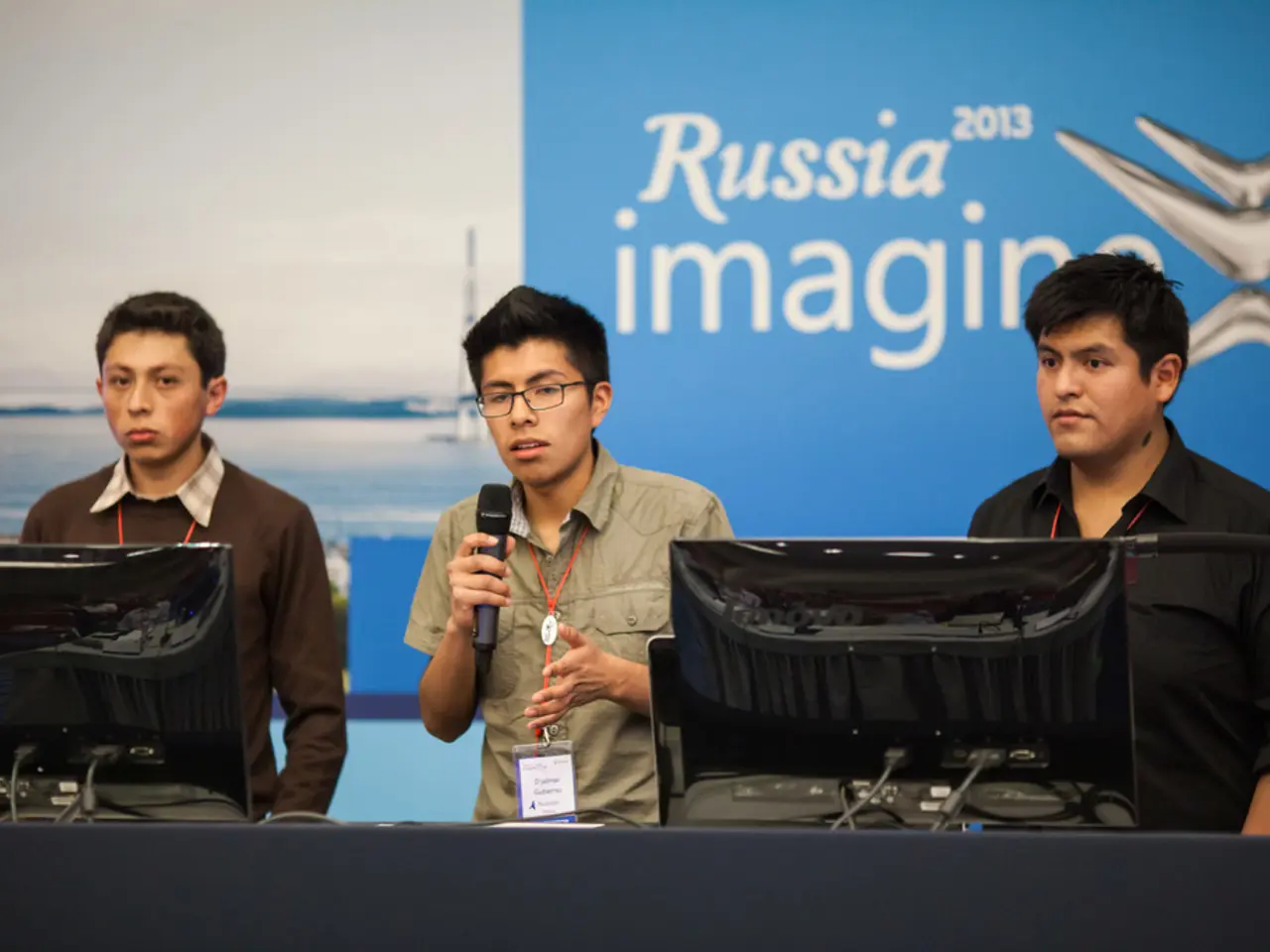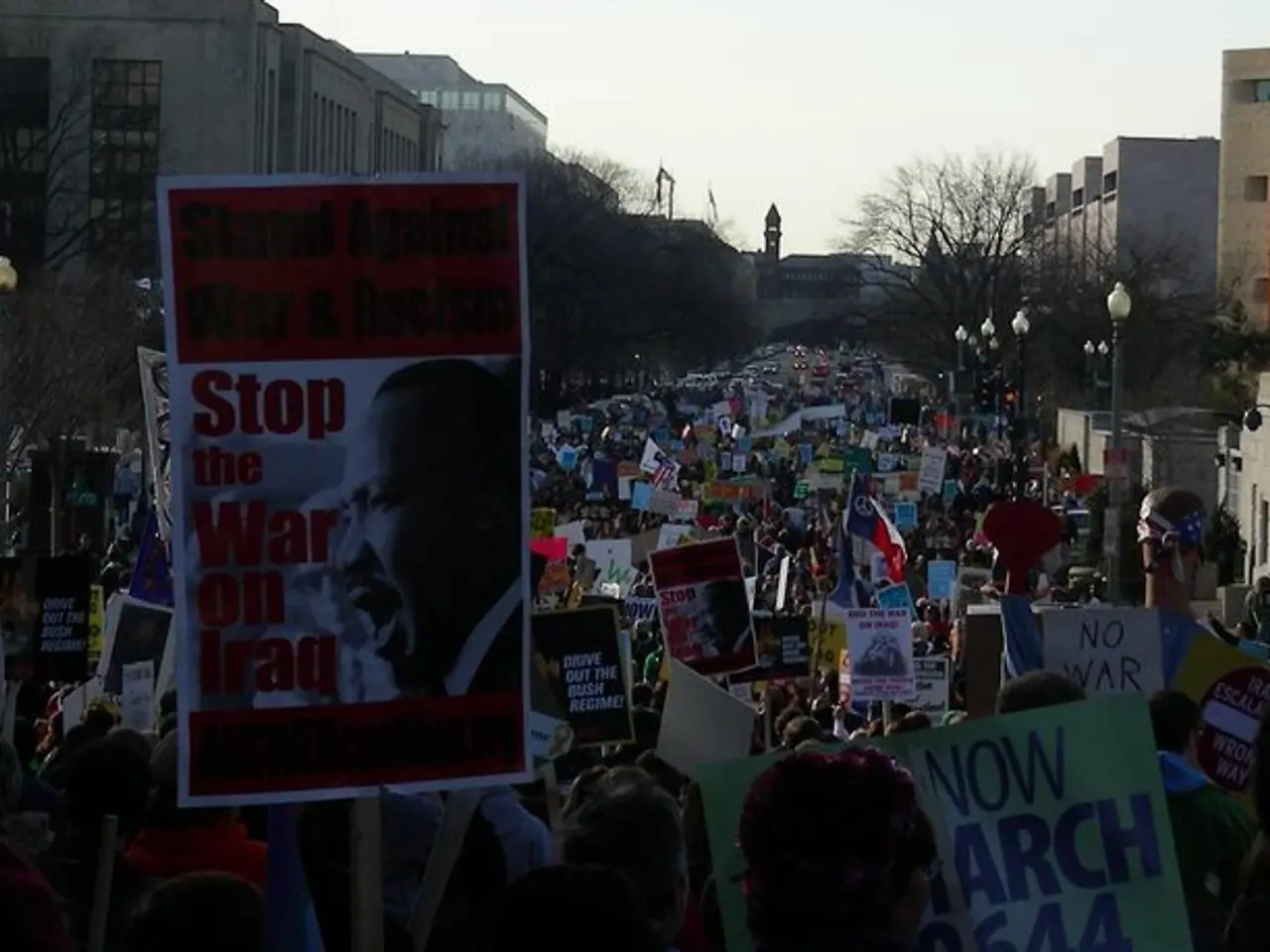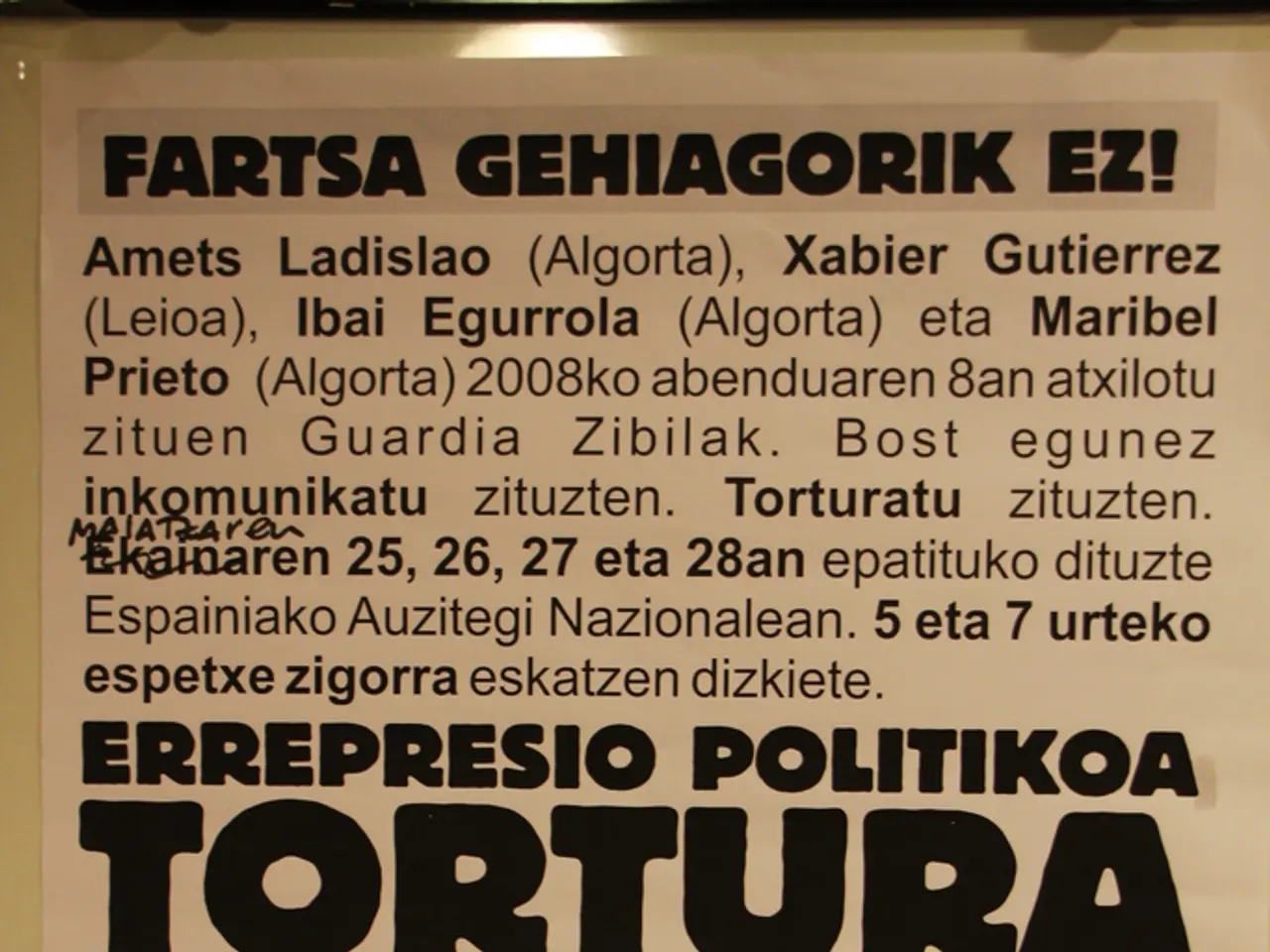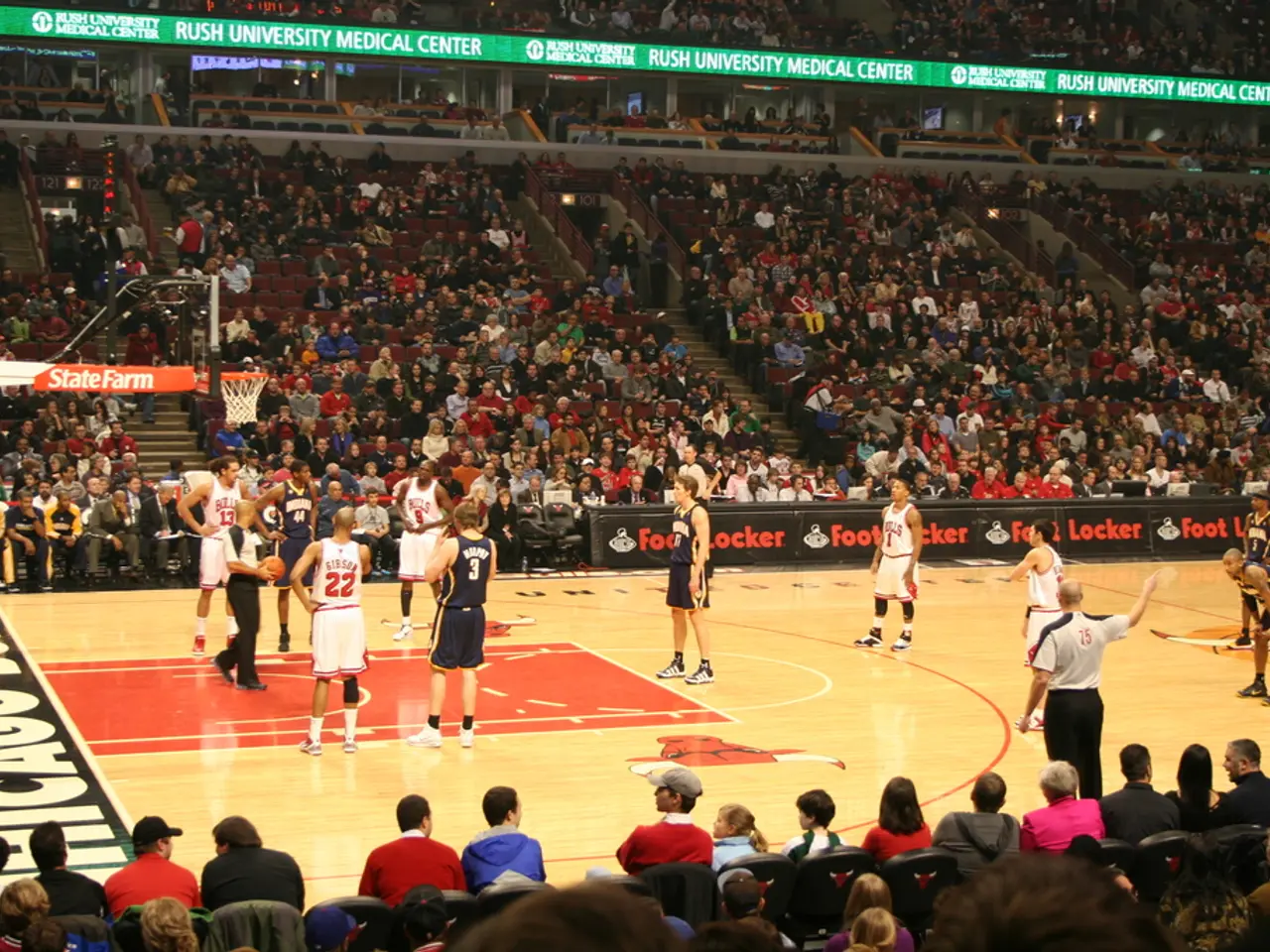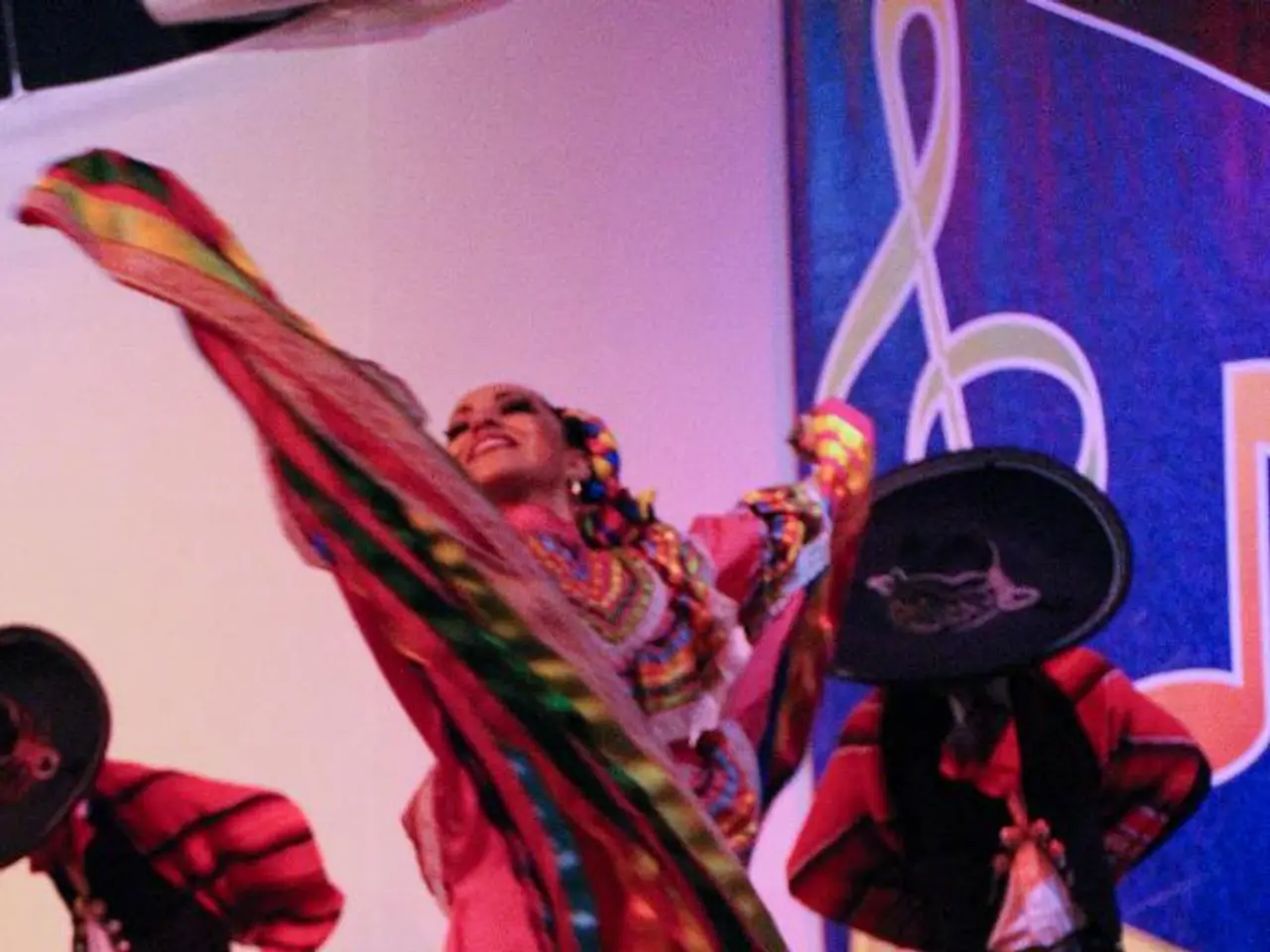Jumilla's mayor defends their regulation of sports facilities, pointing a finger at Vox, asserting that their actions were unconstitutional.
In the small town of Jumilla, located in the Murcia region of Spain, a contentious issue has arisen surrounding the use of municipal sports facilities. The mayor, Sevè González, has approved a ban on the use of these facilities for religious, cultural, or social activities deemed "foreign" to the local government, a move primarily targeting the Muslim community.
The ban, backed by the conservative Popular Party (PP) and the far-right Vox party, has sparked a storm of criticism from various quarters. The Spanish national government has labelled the measure as discriminatory and unconstitutional, arguing that it violates the fundamental right to religious freedom protected under the Spanish Constitution (Article 16) and the Organic Law on Religious Freedom.
The government has officially ordered Jumilla to revoke the ban, insisting that public spaces like sports centres should be available for socio-cultural and religious activities, including those of the Muslim community, which has used such facilities in Spain for decades without issue.
Defenders of the ban claim it aims to preserve the town's "traditional values," but critics, including Muslim organizations and Spanish government ministers, label the initiative as racist and intolerant. The Spanish Federation of Islamic Religious Entities and the Islamic Commission of Spain have condemned the ban as an attack on religious freedom and cultural diversity.
Under popular pressure and governmental challenge, the PP mayor has begun negotiating with the Muslim community to find alternative public spaces for prayer. The resolution of the issue will be based on technical criteria, not ideological ones.
It is important to note that the mayor's initiative is a proposal to modify a regulation, not an outright ban. It does not infringe upon religious freedom or the constitution, as claimed by the mayor. The regulation modification process allows for appeals from those who believe it violates the legal order.
The mayor's municipality houses people from 72 different nationalities without problems, and public spaces can be used for Ramadan celebrations as long as they meet technical requirements, with some public spaces being adapted to the requirements of the Muslim community.
The mayor has historically promoted activities, campaigns, and cultural proposals that defend identity and protect religious values in Spain, not just in Jumilla. The initiative in question is limited to sports facilities, and the mayor negotiated the municipality's budgets precisely with Vox.
The controversy stems from the mayor's attempt to restrict Muslim religious gatherings in public sports centres, a move that has been met with legal and political opposition. The mayor has assured that she has not received any call from Génova regarding the issue.
As the debate continues, the focus remains on upholding the principles of religious freedom, cultural diversity, and the rule of law in Spain. The resolution will be based on technical criteria, ensuring that all citizens have equal access to public spaces for socio-cultural and religious activities.
- The controversy in Jumilla, a small town in Spain, has extended beyond local politics, as the Spanish national government and various Muslim organizations have criticized the mayor's policy-and-legislation, deeming it discriminatory and unconstitutional.
- Despite the controversy, fashion and general news outlets have started covering the issue, shedding light on the delicate balance between preserving traditional values and upholding religious freedom and cultural diversity in modern-day Spain.

